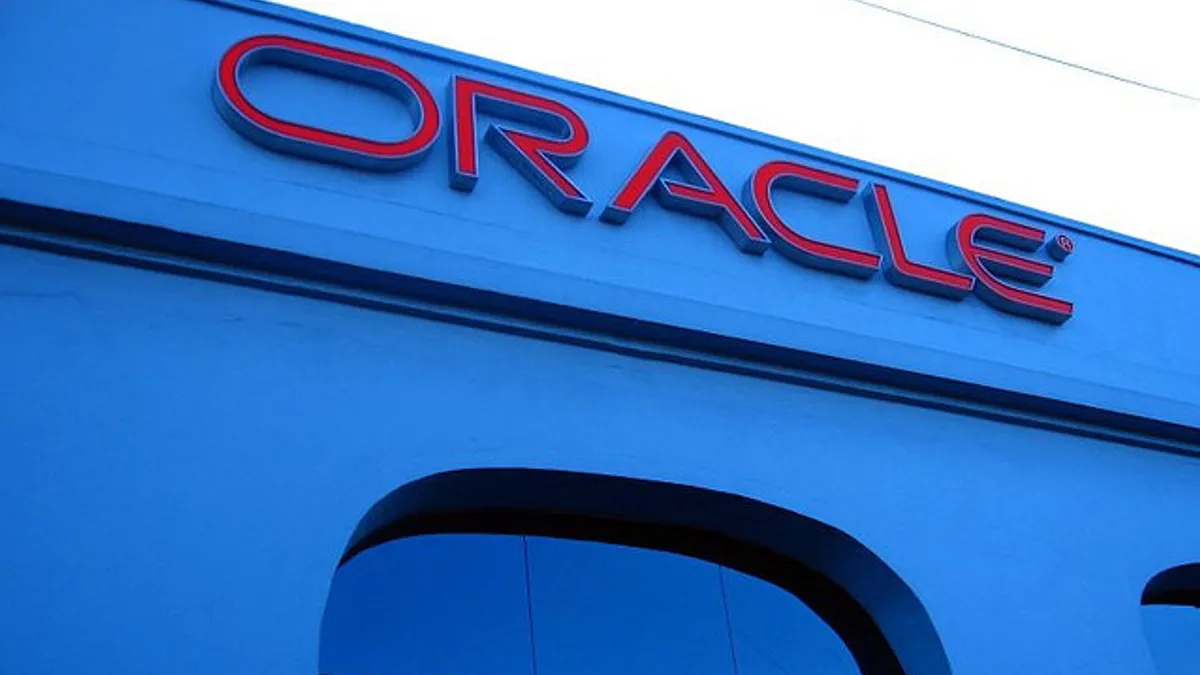Dive Brief:
- Oracle is challenging its cloud rivals Amazon Web Services and Microsoft Azure with plans to announce an autonomous database set to eliminate administrative workloads, as reported by ZDNet. CTO Larry Ellison will announce the database software at the 2017 Oracle OpenWorld tech conference in October, according to the report.
- Ellison said the autonomous database will be more cost effective for customers who use Amazon's human-run database RedShift. Oracle has made calculated moves with acquisitions such NetSuite to offset AWS' encroachment on Oracle customers and boost its cloud software portfolio. However, Ellison acknowledged that acquisitions are not enough to propel the company forward, saying successful technologies are "organically internally developed," ZDNet reports.
- The plans for the automated database coincide with Oracle's 2018 Q1 results. Its Cloud Software as a Service (SaaS) revenues grew 62% year-over-year, and its cloud-based services grew 51% year-over-year, according to Oracle.
Dive Insight:
Oracle, a legacy enterprise software and hardware provider, is overhauling its service and product lines to ensure customer loyalty and compensate for continued cloud adoption. The autonomous database for the cloud is Oracle's latest push to encourage customers to migrate to its cloud over those of its rivals.
Oracle saw promising growth in its overall cloud revenue. Still, AWS and Microsoft Azure currently remain the top cloud providers followed by IBM and Google.
Ellison is quick to compare Oracle's developments to AWS despite stiff competition from Microsoft as well. AWS and Microsoft Azure can integrate licensed Oracle software onto their cloud platforms, and Oracle does not want to see its products on a rival's cloud.
Oracle is gearing up a host of offerings to compensate for the boom in cloud computing. It continues its expansion in the IaaS and SaaS market with the announcement of more applications for its cloud including ERP and human capital management cloud products. Despite Oracle's moves, Microsoft remains the top SaaS provider followed by Salesforce, Adobe and then Oracle.














